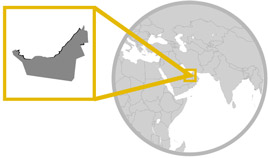Public Schools in Nigeria are overseen by the Ministry of Education but give regional authorities responsibility for implementing policy for state-controlled public education and state schools at a regional level. Private Schools are available but are considered to be extremely expensive with yearly fees typically ranging between NGN 160,000 and 320,000 ($990-$1,980 or £590-£1,180). The Education system is divided into four stages: Kindergarten, Primary Education, Secondary Education and Tertiary Education.
Primary Education has been made both free and compulsory by the Universal Basic Education Commission and involves six years of education supporting Yoruba, Igbo, French, English and other languages (dependant on the school) as well as, in some cases, Computer Science, Fine Arts and Literacy classes. Upon graduating Primary School, students are required to take a Common Entrance Exam to qualify for admission into Secondary School.
Secondary Education is also compulsory, but not free, albeit being very cheap (around NGN 16,000 or $99 or £59 a year). They consist of six years of education split into two three-year tiers (Junior Secondary School and Senior Secondary School). Upon reaching Senior Secondary School, students begin taking GCE O Level Exams to prepare them for the Senior Secondary Certificate Examination with the final Exam being taken at the end of the last year of secondary school. Private Schools are also available but again these fees reflect the ones for Primary School Education and can be quite expensive. Several government-owned institutions are also highly regarded for producing prominent individuals in multiple career paths and these schools are often seen as elite schools and include King’s College and Queen’s College, both in Lagos.
If criteria needed for admission is met, a student may enter Tertiary Education through a University, most universities require a minimum of SSCE or GCE Ordinary Level Credits in two sittings, a JAMB of 180 and above out of a maximum of 400 marks or a Merit Pass in a National Certificate of Education, a National Diploma or another Advanced Level Certificate with a minimum of 5 O Level Credits. University is entered normally at age 18 and allows a student to study for an academic degree. Courses last varying lengths dependant on the field but typically range from 4 to 6 years.

